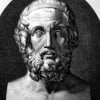Philosophy help!!
I'm a beginning Philosophy student, and the in-class circles of discussion are not helping me to learn what I'm supposed to be learning! Just what am I supposed to be getting out of this class?? lol
We began by discussing Psychological Egoism & Cultural Relativism, and soon will be discussing Divine Command Theory. I understand PE to be 'me, me, me'! And CR to be 'majority rules'. Divine Command Theory, if I remember correctly, is basically saying we have no free will. (I learned something of Philosophy when I was much, much younger! and it was probably a mix of self-learned and one on one instruction.)
Anyone care to join a discussion and help me relearn what I've forgotten? lol The instructor said the purpose of the class is to critically evaluate moral standards, understand moral reasoning, and (I think) to help the student determine right/wrong about the way things should be. I know I can do it, I've done it before. The problem is I don't know the correct steps to take, the terminology, or the basic ideas that brought me to my belief system.
Where do I start? Thanks!
Philosophy ... is your Understanding of the Existent's Reality... It is necessary, if you do not Believe in Divine Origins, and Man's Eventual Accountability.
One does not learn Philosophy ... thats an understanding by Rote ... your
repeating what Plato or Zenos said...
You are however, free to either Live the Correct Belief, or adopt your known Philosophy.DCT does not openly say humans have no free will,
it implies a condition of predetermined thought and potential/limitation based on divine process.
However, there is a h u g e gap in the theory/argument for and against. Much of my recent work has been on this subject.
My conclusions place Choice as the limitation. Choice is in question, not Free Will.
(this is very short, but...) It is by the application of Pure Consideration, one determines Choice --the brand and label-- having been divinely preset, as to give humanity ability. By the very name of that label, humanism has engulfed itself in itself and that limitation as final. Although seen as infinite, is argued as finite. Much like depreciation.
Still, Free Will exceeds humanism, the condition by which Choice is applied and labeled. Free Will encompasses choice by does not engage Choice as a participant of the process but as (watch closely) the processor.
I suggest presenting the argument for thought as Choice/ a processor of divine making versus Free Will and see where it goes from there.
James.Thanks so much, James.
DCT does not openly say humans have no free will - Right.
DCT, in effect, says one of two things.
1. Our actions are right because they are commanded by God. or
2. God commands actions because they are right.
The way I look at it is this: God commands right/wrong only because he created mankind and knows what is right/wrong, or in the best interest, for humans. However, God, in knowing right from wrong, allows a choice as to whether humans follow His guidance because He knows it's wrong to force humans into compliance.
In other words, 1 = being told what to do, no thinking necessary! 2 = being able to think for selves regarding how to comply with commands.Damn!
I read the comments of "believers" in this mythical "god" thing and I am appalled at the embarrassing dirth of knowledgeable thought that is being offered...PUBLICLY!
Obama was so right and with absolute agreement with me, when he said in his "State of the Union" address, that the USA lags in the education of it's children.
To save this country and put it back on a path to viability, EDUCATION must rule!
Regretably, 80 - 90% of the populace of the United States, BELIEVES in a mythical "superman" and the comic book stories presented in a "best seller" called the bible.
With parents promoting and backing the stories in the "comic book" as being true, is it no wonder that
the comments of responding forum "BELIEVERS" are so dishearteningly embarrassing and speak so powerfully for a need to educate American children in science and math?
"Philosophically" speaking, monotheistic belief frustrates learning and the development of "Wisdom!"
I watch with interest as human evolution journeys on!
Qwark?? lol
just so you know, that came from my 8-9 year old self, (not in those exact words, I'm sure!) when I first heard of the Divine Command Theory. I don't think I understood at that time that I was supposed to be critically evaluating it - I'm sure I thought I was learning something true about the world.
Hi Raf:
It took me quite a while to understand that the purpose of a college education is to make you think and teach one how to research and find things.
You will do well I'm sure. :
:
QwarkI've discovered, as an adult, that I enjoy researching things. Once I get something in my head and I look into it, omg, I'll go all night/week until I'm satisfied with what I find! In fact, it wasn't until about 5-6 years ago that I fully understood what Research meant! lol (I went crazy with Encyclopedia Britannica on my computer. lol)
I'm just still struggling with where to go with my interests and skills. lol
lol(I'm still confused about your post - sarcasm? or...what?)
RAf:
I'm sorry! What part confused you? I'm curious.
Sarcasm isn't me.
I tell it as it is and how I see it.
All of what I've posted to you is a sincere and honest response to your questions.
I'm for ya!
Qwark :
:lol Well, I know you don't believe in God, and you seem to be kind (most of the time, to me, etc.
 ) but the post seems almost mocking. I don't get what you're saying, unless you're trying to tell me to stop believing, again.
) but the post seems almost mocking. I don't get what you're saying, unless you're trying to tell me to stop believing, again. 
Raf:
Not at all!
I'm telling you to study...HARD AND SERIOUSLY...be logical and reasonable and end your college experience as a wiser and more credible human being able to seperate the "wheat from the chaff."
Question, question, question...everything!
"I know you don't believe in God,..."
I can't consider that comment 'cause I don't know what it is not to believe in... :
:
How can I believe in that which exists only in personal opinion?
Go study...lol
...and enjoy this wonderful sunday!
Qwark
Inherent in this is the assumption that humans are the most important creatures - an obvious conceit.
What is 'right" for the microbes in the soil is that we die quickly so that they can get on with their use of our nutrients. What is "right" for the animals who used to enjoy their homes in the former forest where I now live is that there were not so many of us.
What is "right" for many who have died in senseless wars is that we should be more peaceable and less greedy.
Every action has its rights and wrongs.Every action has a reaction - be it considered right or wrong is up for discussion.
To God (and humans!) humans are the most important creatures, for without humans there would be no purpose in the existence of the universe.
Microbes don't have a choice in right or wrong. Microbes just are.
Humans are responsible for doing whats right for the animals, however, humans are not required to do whats responsible.
Senseless wars are a repurcussion of not being forced into moral compliance.
I know this is going to sound obscure --almost quantified, but bear with me, Rafini.
Right/Wrong are the operators of Choice.
Both require application to even exist.
Voiding both would be Free Will, applying either would be Choice.
So choice is the base (the necessity). Without necessity there are no conditions (terms/commands).
You can still think for yourself but not apply the conditions or the base necessity.
Right/Wrong, Tangible/Intangible, Good/Evil, Light/Dark are all identical.
An example would be the human being - a tangible body, intangible spirit -right? But if you reverse the process spirit becomes tangible, body intangible. (some reference this a jin, death, transcending --it is even practical in yoga, etc.
The unifier is the mind, the processor of tangible and intangible.
Darkness is simple a lack of tangibility while light is a lack of intangibility and vice verse.
Not challenging DCT, I would raise this point and see what they respond to: Use this ( which got me in serious hot water )
"It is not necessary to consider a question -nor its opponent- a conclusion, both are relational parallels of Choice. Void both and you have unlimited Free Will. Apply either and you are the condition --that is you are Choice and are processing Choice".
James.nope, not obscure, but I'm not sure about quantified.
Okay, what I'm getting is - obviously, right and wrong are polar opposites but it is possible to walk the line directly between the two. Who's to say what's right and what's wrong? What's right to me could be wrong to you.
OMG! That's putting it right back at the beginning! lol
Okay, let's try this again.
Right and wrong are polar opposites, but the possibility of being directly in the middle while being capable of accepting non-opposing viewpoints does exist.
Much better! So, this would explain how murder is considered wrong but murder as self-defense is acceptable.
Is this what you're saying? (I can't raise your point unless I understand it. )
)Within Choice right/wrong exist as you said (exemplified by murder).
However, Free Will is the sum and substance. Within the "sphere" of Free Will is choice and where the parallels exist. but Light/Dark are not different, only seen differently by the application.
What is light? Tangible energy.
What is dark? Intangible energy.
what is right is deemed visible/evident provable
what is not right is deemed invisible/inevident unprovable
what is good is deemed light
what is evil is deemed dark
What is the mind?
The processor of light/dark.
Now when a human applies thinking, relies on internal thoughts, they must choose. It is impossible for them not to --as the processor has become the Processor. This is where the division comes in. The mind is relatively singular in its processes, so it requires uniformity to make itself process as its own, else it would be void (unconscious) of itself and the flow of tangible-intangible would be uninterrupted.
So, by applying (question, think, conclude/results **), the mind creates a parallel "uni" verse of conditions. These are all necessities.
Remove the condition of necessity and there is no division.
No division, no choice or applications of it.
Free Will then is absolute.
James.
** this is called the tres priori.
Priori - Question
A Priori - Process within process
Posteriori - Determinationwhoa! What is this? It doesn't exactly sound like Philosophy ~
Free Will is absolute = Everything is a choice.
I'm not sure I understand: by applying (question, think, conclude/results) the mind creates a parallel 'uni'verse of conditions.
Through the process of thinking, the mind creates its own set of conditions?Exactly.
Choice is that set of conditions (limitation).
Free Will is void of Choice (unlimited).
Make sense?lol yes and no.
By saying Free Will is void of Choice, it sounds more like the Divine Command Theory as written, rather than understanding the DCT as a matter of absolute choice.
By being given a choice, whether to follow God's commands, God has, in fact, given all mankind an individual reality.Based on the Divine Theory, yes.
Good thing it is just that, a theory........lol
(Hence, why I was in hot water for suggesting Free Will is not Choice.)
The DCT is a product of Choice.
Both theology and science dislike my presentation and critique, but neither can deny it or provide validity apart from written human documentation.
And that...I find very amusing
James.this has been very enlightening - I thank you much!
 I think I know how to approach my paper now. lol I've already started writing it in my head.
I think I know how to approach my paper now. lol I've already started writing it in my head.
The problem with DCT, as written, and saying Free Will is not a Choice, is that then good and evil would be absolute and forgiveness would be non-existent. There are no absolutes. It would also be giving credence to Psychological Egoism.
If the DCT is understood as I have stated, then the issue becomes whether there really is a God.
Based on my memory of my University days, as well as my career experience to date, my suggestion would be to change your major.
It will not! No, it wont!! I swear, it wont! lol
Philosophy isn't new to me like Physics. Just a forgotten process.
Just a forgotten process.A philosophy major never ends well - look at Steve Martin and Bruce Lee, both dead before their time.
Hey Rafini,
I've no schooling on philosophy at all, however, during my time researching religion and history, I was forced to try to learn and understand a little bit about philosophy.
I'm no good at the terminology, however, I did write a hub on Morals, if that helps.
I'll come over and take a look.
 (what's the title?)
(what's the title?)Wonderful!
Any action that purposely benefits mankind is good or right.
Any action that purposely harms mankind is not-good or wrong.
If I remember correctly, this is the conclusion I should reach, about morals, by the end of the semester. Thank you Cagsil!
I would think a few hours at Wikipedia would refresh your memory and add new knowledge.
do you own stock in Wikipedia or something? You always seem to be pushing for its use....
all around, not a bad suggestion, but honestly, college doesn't approve Wikipedia for research....No, I don't own stock in Wikipedia.
You didn't say you were doing research that you needed to cite. My impression was that you needed to catch up and refresh your memory of things you once knew ("help me relearn what I've forgotten").
If that wasn't what you meant, obviously you need to head to the library instead - because your college won't let you cite this forum either (though Wikipedia could still give you a quick list of what you'd be looking for).(that's why I said 'all around not a bad suggestion')
I'm not looking for different branches of Philosophy (what branch does a beginner study??) but to understand what it is I'm supposed to be understanding.
Gotta remember, I'm a strange learner. When I read about Cultural Relativism I think I'm reading theories that have been proven and it takes me a while to get the idea that I'm supposed to argue with it!
(because being critical isn't a good thing!! Or, so I've been told. Seriously though, ~ I'm not very good at separating when being critical is okay and when not to be critical
Seriously though, ~ I'm not very good at separating when being critical is okay and when not to be critical  and most times I get it backwards)
and most times I get it backwards)
Hey Rafini,
Remember also, emotions are amoral. Meaning, they are neither right or wrong.
"Zen and the art of motorcycle maintenance" R Persig I believe. "The problem of pain" C.S. Lewis. "Universe Lost". Ultimately, I would agree with Cagsil regarding feelings. Doing the right thing rarely equates to doing the easy thing. I'm guessing that is due to the fact that we base so many decisions on how we will feel... Kind of fly's in the face of self-less-ness... Perhaps that is the gauge. Is the action selfish? Or selfless?
Should be an awesome class! Just remember to avoid the shoehorn...one size fits all... accept it all or none at all... thinking that is implied when someone asks you about your philosophy... and it'll be fun!
Likely.
Whoever said "Philosophy is bunk" wasn't completely right, but that does have a lot of truth to it. It's always bunk when it shifts into its religious phase and an awful lot of it is the kind of stuff that should have been settled in your mind long before puberty.
That's a harsh view, though. When properly combined with science and logic, some of the things philosophy addresses are worthwhile.
Only some, though. Much of it surely is bunk, or at least not anything an adult should need to waste any time on.I wouldnt agree with that, all the sciences and medicine sprang from philosophy. Its other main function is to teach how to reason, what makes a legitimate argument and what is a bs excuse for an argument.
Certainly logic is part of philosophy, but it can stand alone without it.
Certainly the quest for answers leads to science (or should - some people think "goddunnit" is an answer).
But what I'm referring to is the kind of simplistic stuff that the OP referred to about morals. That is "bunk" - in that it should have been resolved in your mind long before reaching puberty.
I further assert that there is no question philosophy can ask that is outside the realm of science and logic. Some may not be able to be answered quite yet, but none are outside. Therefore, in that sense, the study of philosophy is bunk, except as a means to gain a historical perpective on human thought.That's a bit overstated. Philosophy can ask valuable questions about the relationship of language to reality, for example, or the nature of consciousness. Also Epistemology is more than logic and not strictly science.
there is no question philosophy can ask that is outside the realm of science and logic
Okay, wanna get the discussion going? Give an example, please.If you want to assert that there is such a question, have at it. I can't imagine any.
~a question that isn't outside the realm of science and logic~
No. Your task is to provide a question that is outside of science and logic.
(I screwed up typing that twice, sorry!)
Not a question that hasn't been answered yet (like what are the underlying rules of matter and energy), but a question that can never be answered by logic and science.understood, except I have no idea where to begin! so, I'll ask random questions and you'll keep rejecting them until one comes along that fits the requirements? Okay, I'll try one.
Why bother with eating of a well-balanced diet?No, seriously?
Obviously that is a scientific question. Are you joking with me?No, not joking. It may be incomplete, but not a joke.
Why bother eating a well-balanced diet is only scientific when you consider the benefits of healthy living. But, what if you don't care about being healthy? I mean, what if enjoying your life is more important to you than eating healthy?
Should you even try to eat a well-balanced diet if enjoying your life is more important to you than your health?
(told you, I really don't know where to begin.)
It's been a long long time since I've done any kind of independent thinking!!
No China Man - I can't afford a private college! lol
Bertrand Russell's 'History of Western Philosophy'will take you from ancient Greece to early 20th Century in about as concise, readable and entertaining a path as you'll find anywhere.
Then let Bryan Magee take you from Russell up to the present time.Would that exclude Psychological Egotism, Cultural Relativism, and the Divine Command Theories?
My mistake. I was recommending a book on Philosophy, under the impression that was what you were wanting to refresh on.
In studying moral development, you might be interested in the research and writing of some psychologists to supplement the philosophical thinking process. Examples: Lawrence Kohlberg, James Rest, Thomas Lickona, Carol Gilligan, Mary Brabeck, Donald Elfenbein, William Damon, Robert Peck, Robert Havighurst and others.
When I consider the difference in approach between the philosophical and the psychological (and, in some cases the anthropological), it seems to me that the philosophical approach is more theoretical and imaginative, while the psychological approach tends to rely on more concrete observation and even on the scientific method.
It might be an interesting topic to discuss in class (i.e., the difference between these approaches).Indeed. But I think the philosophical loses so badly that the professor wouldn't dare allow it

 !!
!!
I'm guessing here (being philosophical), but it seems to me that the philosophical approach predated the scientific method and was an attempt to explain from some observation and a lot of thought what we later became capable of study with more controlled observations. Then, later in history, philosophy became rather self-absorbed and focused more on the thought processes and less on concrete observation. Just IMHO.
Well guess I can't help you much since my degrees are all in (natural) sciences
 (except one in Business Studies (which is actually sometimes referred to as a "science"too
(except one in Business Studies (which is actually sometimes referred to as a "science"too  )
)
But just do what you like and don't consider changing your subject just because of money or prestige reasons - everybody should study what he or she likes the most! And if you're good at it you'll be happier anyways
Hello RDS, if you have any experience in Philosophy I'm sure you'd be of some help.

I'm in the process of rediscovering what I like - I've always had an interest in Philosophy so I thought I should check it out.Please take this as genuine curiosity and not anything antagonistic.
Why philosophy instead of science?lol truth?
a few reasons. I was introduced to Philosophy at a young age and have always been curious about it - many people close to me get sick and tired of my philosophical views.
I suppose I could say I'm holding a grudge against my mother for not getting me that chemistry set when I was young.
I consciously decided not to take chemistry & physics in high school thanks to a hellacious experience in Algebra class - I was terrified of a repeat.We are quite the opposites. I was exposed to algebra very early and loved it. I loved science and math in general, though I have always had difficulty with geometry - I just don't do spatiality well.
Philosophy really does seem silly to me. Of course you will understand why I dismiss the religious aspects as meaningless, but it's more than that. Your earlier comment about a college class on morals (or was it moral relativism?) is a great example - that's the kind of thing I found very interesting at the age of 7 or 8, but if I walked into a discussion like that today, I'd back away as quickly as I could!oh, I loved Algebra! It was my favorite class!
That is...until my Algebra teacher decided to make an example of me and it backfired in my face.
I lost interest in science when I didn't get the chemistry set, lol, but may have pursued it in high school if Algebra hadn't turned out the way it did.
Well, ya see, I kind of have to take the Intro to Philosophy before getting into the higher levels. I'm not too sure I will, but I'm exploring right now. Last semester was all about my strengths. This semester is about my interests. (it actually seems to be beginning as a bust - I'm very bored which doesn't make sense) Next semester will be about meeting requirements (I haven't taken a math course yet either - I want to retake the Compass Test so I can land back in Algebra rather than Pre-Algebra) And my final semester will be for any leftovers.
which doesn't make sense) Next semester will be about meeting requirements (I haven't taken a math course yet either - I want to retake the Compass Test so I can land back in Algebra rather than Pre-Algebra) And my final semester will be for any leftovers.I've got to defend the study of philosophy as an exercise in logical thinking. My favorite(and most difficult)course in college was Symbolic Logic-actually Propositional Calculus. Mathematics had a critical place in all of the classes I took investigating the validity/invalidity of arguments.
Logic is essential to my understanding of thought processes.Calculus is logic?
I really do get tired of trying to keep up with what classifies as what or belongs in what category. lol I'd prefer to do the work and just get it over with! lol You know, so I can move on to whatever's next. lol
lol I'd prefer to do the work and just get it over with! lol You know, so I can move on to whatever's next. lol
Mathematics helps with investigating the validity of arguments? I suppose that makes sense. My Reason In Communication class (from last semester) is listed as Quantitative Reasoning, which I heard can be used by some as a math credit. (I guess it depends on the program - I couldn't use it as math) I just don't understand how, I guess.Logic is obviously worthwhile. You don't need phiosoohy for that.
It's cool if you do what you like most. I was hungry for scientific knowledge since I was a small kid and that's what I later studied. And It made/makes me happy! So if you were interested in philosophy and always wanted to know more about it, it's the best thing to do what you're interested in. You only become good in subjects you really like not the ones who you study just for getting a good degree or making money. (And you can always change if you think that philosophy isn't the right thing for you
 ) So go for it Rafini!!
) So go for it Rafini!! 




Ya know, now I'm wondering if I shouldn't take more science classes...there's obviously some kind of interest there....
I'm so confused!! lolthere are tons of tests online but they don't seem to help, the last one I took told me to get a doctor doctor (THAT kind of doctor
 ) but well medical school never appealed to me
) but well medical school never appealed to me 
But I'll try my best to help you myself, just answer these questions
Do you like reading textbooks?
What's your dream job?
Mathematics are... (complete the sentence )
)
How many books do you read per month ?
How much time do you have to spend for studying every day ?
Where did you get the highest marks in school?
What's the first thing you think of when you hear the term "paper"?
What do you prefer: Sudoku, chess, crossword puzzles or playing basketball
Cigarettes are... (complete the sentence once again )
)
Life is... (complete the sentence - o.k. last time now xD)
My favorite number is?
Do you read newspapers?
Do you have any pets ?
Which foreign language appeals to you the most?
Do you enjoy debating?
Ok hope all the questions are clear and the "RDSPhD, which subject shall I study"-algorithm is ready for data processing
Ooooh, a test!! lol
1. yes (I know, it's odd!! lol I read my son's history book from front to back!)
2. too many options!! Do I really have to choose? Um...Novelist.
3. numbers and equations
4. not many
5. study? Well...you see...As long as I'm interested, I'll devote the right amount of time to complete my assignments.
6. throughout elementary & middle school - all subjects. In high school, Math & English
7. give me a pen or pencil so I can write something! (or doodle, make a mark, whatever! just ink & paper go together. lol)
8. Sudoku
9. off limits
10. a complicated journey
11. 9
12. No
13. yes
14. Used to be Spanish, now, Latin piques my interest. Sign Language, if it could be considered a Foreign Language.
15. NO! But, I do enjoy discussing the opposite sides of things. I suppose I could say I enjoy debating as long as it's civilized.
(I don't get it. lol what's my fave # got to do with it? lol)
lol what's my fave # got to do with it? lol)Haha ok well I've got to tell you from what you've answered you're very well suited for any scientific matter. But since that's just a feeling of myself based on 15 random questions (that I've tried to make very concealed so you couldn't predict the outcome) and you're also interested in philosophy I would suggest you to visit several lectures (maybe of last years class) in different matters before you start studying yourself. I think you will feel when you're sitting in the right subject (although it strongly depends on the teaching person
 ).
).now, how did you come to that conclusion from these questions and answers? lol
what the hey!? did I just get duped??Nah these are some serious questions, based on my experiences with chemistry and physics colleagues and students

Another good one is: If you close your eyes and imagine the numbers 1 to 10, where is the 10, on the "left side" or the "right side" ?
haha you just start counting from 1 to 10 with your eyes closed and imagining the numbers in front of you, is the 10 to the left or to the right (do you count from left to right or from right to left
 )
)seeing as how its a test, the 10 jumped from side to side. lol
um, seriously, though. you didn't answer the question -
how did you come to that conclusion from these questions and answers?
you said - you're very well suited for any scientific matter.
but that was based on just a feeling from my answers to your random questions.
are you sure you're not duping me?
Nah In fact I needed the answers to get through your bank account safety questions
 No just kidding! I really picked out some good questions like if you like reading textbooks because that's what you do most when you start with any science
No just kidding! I really picked out some good questions like if you like reading textbooks because that's what you do most when you start with any science  . Or the Sudoku question was referring to your mathematical skills, whether they are more on the combinatoric, logic or knowledge part
. Or the Sudoku question was referring to your mathematical skills, whether they are more on the combinatoric, logic or knowledge part 
Then choosing latin based languages (as spanish or latin itself) is related to both philosophy and science in a way. If you had said mandarin that would make you more of an "economics" guy (or a language learning guy ).
).
Oh and the life is question refers to whether you see life as being easy or complicated, the fact that you're saying it's a complicated journey shows a certain maturity (also needed for serious studies like philosophy or science ).
).
The number part is an old joke, if someone chooses 3 or 7, he's said to not be creative (of course this is just a fun question with no scientific evidence but ask some of your friends you'll be amazed how everybody has odd numbers, especially 7 as their favorite number ).
).
Question nr. 5 was answered perfectly, that's the motivation
These questions are all based on my personal experience/view of the typical science student because actually I'm quite good at predicting subjects when looking at people/talking with them
hahaha - if these questions had anything to do with my bank account I wouldn't have answered!

Philosophy or Science - that is the question!
(but, what does the #9 mean?? lol)
Pretty cool.
well some say nicotine helps you to stay focused (of course biologically the "positive effects" vanish as soon as you've smoked 1/5 of a cigarette xD) but I just wanted to check if you're addicted to cigarettes, because you'll be drinking lots of coffee and energy drinks while studying so atleast you shouldn't be smoking regularly

lol ooops, the fave # 9.

(I quit smoking last year, hence, cigarettes = off limits )
)
At its most simple philosophy is the way things are done like different fisherman
have different philosophies of fishing.
On another level philosophy is how should
one live one's life, like should one live
for money or love? Philosophy is asking
questions and trying to answer them.
Philosophy classes teach what questions
known philosophers asked and the answers
they came up with. Why are we here and
what is the purpose of life? To be a
philosopher one asks questions themselves
and tries to answer them themselves.Philosophies of fishing? Methods of fishing. Algorithms. Theories. Not philosophies.
Morals are subject to science and are particularly interesting in the context of evolution.
Studies of the importance of money vs. human connections have actually made news recently.
Why are we here is the subject of both evolution and physics.
As to the "purpose of life" in a general sense, there is none - unless you are religious, of course. There may be reasons - physics may ultimately show us that life is inevitable - but "purpose" is a religious construct.What kind of questions?
Like, what question would have been asked to come up with an answer such as the Cultural Relativism Theory?
Wait! Okay, maybe I'm getting it. So, the question would have been something like, Why do people struggle to do what's right? Who determines what's right or what's wrong?
And then in order to answer the question, you don't give a simple answer. You dig deeper than saying, "Because mom & dad told me to". right? lol What actually causes, or compels, people to have a conscience or to follow a set of morals?This is where the psychologists I mentioned can add some insight. All of them wrote on some aspect of the way a moral awareness develops in children in stages, beginning with the stage (sometimes called the Zero Stage) that says "Whatever I want is what is right." (Egocentric Reasoning)
Stage 1: Unquestioning Obedience (I should do what I'm told)
Stage 2: What's-in-it-for-me Fairness (Look out for myself and also be fair to those who are fair to me)
Stage 3: Interpersonal Conformity (I should be nice & live up to the expectations of those I care about)
Stage 4: Responsibility to "the System" (fulfill responsibilities to the social or value system I feel part of)
Stage 5: Principled Conscience (greatest possible respect for rights and dignity of every individual person, support system that protects human rights)
[Labels are from Thomas Lickona.]
That's a synopsis of how morality develops in individuals. The question in Philosophy would probably be, Why or how did the concepts of good and bad develop in the first place? -- Whether it's from a religious or a humanistic perspective, the general answer is that there is some value that is greater than the value of one individual person, and that value is worth preserving, protecting, and perpetuating.These 5 stages make sense - are they supposed to be reached & passed on the way to adulthood or revisited on a regular basis? (it feels like revisited would be correct)
The way I remember the explanation was that most of us "live" in more than one stage at the same time - usually the stage below and the stage above the one that is the strongest in us at the time. But I think you are right that there are times when we revisit some of the much earlier ones. I think it would be a revealing study to try to figure out what triggers the visits to earlier stages (trauma? crises? specific matters or situations that are meaningful to the individual?).
Stage 0 is usually for kids up to/through age 4.
Stage 1 for around kindergarten age.
Stage 2 - early elementary.
Stage 3 - mid-elementary up to/through early-mid-teens.
Stage 4 - high-school/ late teens.
Stage 5 - young adults and beyond.
Ideally.
The problem is that there are plenty of people who never leave the stage they are in. A lot of people never reach Stage 5 and some reach it at a later age than others do.
In terms of helping others (especially our own kids or the ones we teach) move to the next stage, a recommendation is to accept them where they are and the thinking that goes along with that stage, but at the same time to challenge them to think about the issues of the next stage (such as by asking the question "What if everyone did that?").
As best as I can recall, I passed directly from stage 1 to stage 5. I may have briefly been in 2 - I absolutely was never in 3 or 4.
Evolution can answer the why better than philosophy or religion.
How so? The observation occurs after the fact, and is so far distant from the origin of "why" that there are no observable facts to substantiate reasonable theorems. Micro-E occurs everyday, but Macro-E (respectfully) requires as much, if not more "faith" than Ph. or the many "religious" explanations.
I do think the question is what is our purpose? Why are we here? These are two small pieces of what separates us from the beasts. And yes Pcunix...that would imply a Grand Design and therefore Designer/s, and I understand why that does not frame well in your model. (It takes all kinds to make a world!)The "beasts" also have morals.
Fairness, justice, and the related actions help groups work together. You don't need any fairy tales to explain it.No...beasts fail to pass that test. They have instinctual behaviors but are never "heroic". Which makes sense from an evolutionary point of view. I have seen Mother coyotes, foxes, bobcats, wolves and bears defend their litters up to near death. They get a little chancy to be sure, but they will never sacrifice their lives for the benefit of another....that is a uniquely human trait...which fails to meet Evolutionary guidelines...
Fits:
...but "WE" are earth's 'PRIME" beast!
Only a "fool" would sacrifice his life for anything but his children.
I am human! There is no "trait" in me that would cause me to "sacrifice" my life for others.
QwarkI think you need to read up on current work with apes and other animals. Your view is way out of date and not correct.
Try this for starters: http://www.nytimes.com/2007/03/20/science/20moral.html
There is NOTHING that is "uniquely human". All we can ever claim is advanced degrees.
"Cultural relativism is the principle that an individual human's beliefs and activities should be understood by others in terms of that individual's own culture." Should or does belief and activity transcend all culture and be universal? Yes you are
getting it.Somehow I came up with Cultural Relativism to mean that any given society determines what is right/wrong for that society. In other words, an individual is not capable of determining for himself what is right/wrong, and the individual is held accountable for following the ideal of Majority Rule.
Hi Rafini, cultural relativism could mean for example -- in some culture it is alright for some men to sleep with the bride before she marries the next day, in some culture this is a no no. Women are dressed with their whole body covered in some Muslim countries. If we looked down upon them or try to say that it is wrong, we become ethnocentric - basing ones idea of correct behavior based on your own culture.
Killing is considered wrong in all culture though.
I know a culture where killing one of their brothers or relatives, they have the right to kill you - a tribe in the Philippines. I don't know if that tribe is covered by laws of the whole land.
"an individual is not capable of determining for himself what is
"an individual is not capable of determining for himself what is
right/wrong,"
There is a classic bit of literature concerning this subject called 'The Grand Inquisitor' by Fyodor Dostoevsky.
http://en.wikipedia.org/wiki/The_Grand_Inquisitor
This is to say that philosophy is not only found in philosophy classes but in novels, poetry, fifm, music almost anywhere especially in one's real life. The object is to create contexts to recognize. The context is the questions.Hi Rafini-It sounds to me like you're in quite an advanced class for a beginning philosophy student. I've a minor in the discipline, and I found starting from scratch was very helpful when advancing.
I'm a great supporter of a chronological approach: Aristotle, Plato, etc. It gives you a sense of the evolution of philosophical thought.
All my best!Hey Girl, You go! I love Philosphy of the heart, but you're studing for a degree and that type of focus and content is rarely the good stuff that gets your heart racing!
Hang in there and remember your passion. YOUR PASSION for Philosophy.
Whoa, Rafini! This is like the third time you've changed your profile picture today! (Two in the past five minutes, no?) Is it an experiment? Maybe a philosophical experiment, LOL?
lol
I'm looking for a new one - getting kinda tired of all these men from India contacting me.
BWAHAHAHAhahahaha!!! I love it.
Actually, all of the ones you've posted have been beautiful. Don't think that you're gonna escape those men from India ! Or from anywhere else, either.
! Or from anywhere else, either.lol
omg! It seems as though all I can find are the slutty sexy ones or the beautiful ones, lol - I'd rather go for the beautiful ones that look artistic. lol
I did consider a space/scientific theme, but seeing as how I'm not knowledgeable in those areas I thought it might be a little too deceitful. lol
For stages of moral dev't check also Piaget, Kohlberg and Gilligan. Lots of reading, why did you get that course, LOL
lol I"ve held the interest for 35 years! I felt it was time to explore it a little.

Good luck rafini, as long as you are interested, you will be emerged into it and you will be thrown into the world of philosophizing and it is good. I know you are brilliant and persistent.
Raf:
I argued, in class, with my philosophy prof.
The definition of "philosophy" is "love of knowledge."
If he made statement I didn't agree with I'd challenge him and remind him of that definition and that the purpose of a student attending college was to, not only be taught a subject, but to learn to think! Not just to accept rote, the words of a professor.
My Prof would end out little debates by turning to the blackboard and announcing, to the class that Mr Qwark, had just earned an "F" for todays class and chalk a big "F" on the blackboard!
I ended "Philosophy 101" with an A- :
:
Read your subject, know it well, and be ready to challenge your prof. If he/she is truly a "philosopher at heart," and you present your argument logically, knowledgeably and firmly. your prof will appreciate you as being a "thinker!"
But be ready to accept a "studious and learned" beating. Accept it with honor and learn from the experience. You, at least tried! :
:
QwarkGreat story!

omg - I have so much trouble opening my mouth in class and I do so much better in writing! lol
and I do so much better in writing! lol
Okay, I get the point. I need to speak up in class, and not let everyone else have all the fun.
I need to speak up in class, and not let everyone else have all the fun. 
Related Discussions
- 7
I noticed one discussion happening in the religion and philosophy forum. The que
by William Thomas 14 years ago
I noticed one discussion happening in the religion and philosophy forum. The question they are...discussing, which I will pose here is this: "Why are hubbers afraid to enter the religion and philosophy forum?" (The idea that the range of participation is rather paltry given the big number...
- 25
Freeform Help Thread
by Jessie Watson 7 years ago
I've decided to make a daily commitment (M-F) of posting a "help thread" on the freeform discussion for users to get help from the community. I understand there are places and forums designed for this but there has been an issue with relevant content coming up on the main forum page. A...
- 36
What's with all the Religeous Forum Posts
by Peter Owen 14 years ago
Why are people posting so many religeous or spiritual questions in a forum for Writers? Is it that some just like to start arguments that cannot be proven either way? Or, the more likely, are some using forums for doing their religeous service instead of going house to house and getting the door...
- 54
To my fellow forumites with differing beliefs.
by Beth37 12 years ago
Im going to do something that even I find annoying, but it seems like we should be able to say something nice to each other once in a while. So in the spirit of love, I would like to say something honest and true about ppl who may have different view points than I do. I hope that any jokes will be...
- 7
Can you connect science and philosophy? Are both enemies?
by icv 9 years ago
Can you connect science and philosophy? Are both enemies?





















